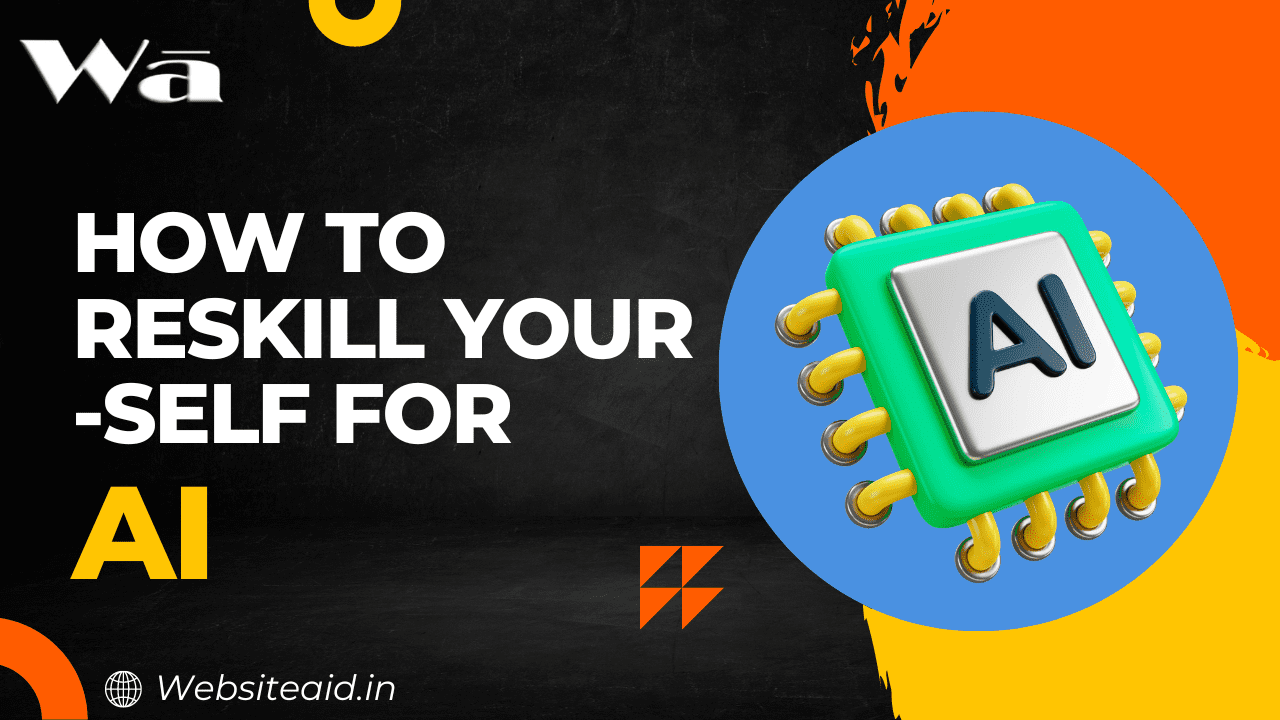Staying ahead of the curve in an era where artificial intelligence (AI) is becoming increasingly important in areas ranging from healthcare to finance involves constantly improving your abilities. Because of the rapid advancement of AI technology, work roles and career landscapes are evolving, making reskilling a must rather than an option.
Embracing the AI Revolution
As AI and automation reshape industries, individuals must adapt to this transformative wave. Reskilling, or the process of acquiring new skills or upgrading existing ones to thrive in an evolving job market, is a strategic response. Here’s a comprehensive guide on how to reskill yourself for AI and secure your future in this tech-driven world.
Understanding AI and Its Impact
Before diving into reskilling, it’s crucial to have a foundational understanding of AI. Start by exploring the following concepts:
What is Artificial Intelligence (AI)?
AI refers to the development of computer systems capable of performing tasks that typically require human intelligence, such as visual perception, speech recognition, decision-making, and language translation.
AI’s Role in Our Lives
Explore the pervasive influence of AI in daily life, from virtual assistants like Siri to AI-powered recommendations on streaming platforms.
The Impact on the Job Market
Discuss how AI is changing job requirements and creating new opportunities while rendering some roles obsolete.
Identifying AI-Related Skills
To reskill effectively, you need to pinpoint the skills that will be most valuable in the AI-centric job market. Here are some critical areas to focus on:
Programming and Coding Skills
Highlight the significance of programming languages such as Python and R, which are commonly used in AI development.
Machine Learning and Data Science
Discuss the importance of understanding machine learning algorithms and data analysis, which are the backbone of AI.
Problem-Solving and Critical Thinking
Emphasize the value of analytical and critical thinking skills in AI-related roles.
Choosing the Right Learning Resources
Reskilling demands access to quality learning resources. Fortunately, there are numerous options available:
Online Courses and Tutorials
Explore reputable online platforms like Coursera, edX, and Udacity, which offer AI and machine learning courses.
Academic Degrees
Consider pursuing formal education, such as a master’s degree in data science or AI.
Community and Networking
Highlight the significance of joining AI communities and attending conferences and meetups.
Hands-on Practice and Projects
Learning by doing is crucial in AI reskilling. Encourage readers to:
Work on Real Projects
Engage in practical AI projects to apply theoretical knowledge.
Create a Portfolio
Build a portfolio of AI projects to showcase skills to potential employers.
Collaborate and Share
Collaborate with peers and share insights, fostering a supportive learning environment.
Continuous Learning and Adaptation
The AI landscape evolves rapidly. Stress the importance of ongoing learning:
Lifelong Learning Mindset
Cultivate a mindset of continuous growth and adaptability.
Stay Informed
Regularly follow AI developments through news, journals, and research papers.
Embrace Challenges
Encourage embracing challenges as opportunities for growth.
Conclusion
In conclusion, the rise of AI presents both challenges and opportunities. To stay relevant in the job market and harness the potential of AI, individuals must proactively reskill. By understanding AI’s impact, acquiring essential skills, accessing quality resources, practicing hands-on, and embracing lifelong learning, you can position yourself to thrive in the AI-driven future.
FAQs
1. What is the significance of reskilling for AI?
- Reskilling is essential to adapt to the changing job landscape and harness the opportunities presented by AI.
2. What are some fundamental AI skills to acquire?
- Critical skills include programming, machine learning, data analysis, and problem-solving.
3. Where can I find resources for AI reskilling?
- You can access online courses, pursue academic degrees, and join AI communities for resources.
4. How can I gain practical experience in AI?
- Engage in real AI projects, build a portfolio, and collaborate with peers.
5. Why is lifelong learning crucial in the AI field?
- AI evolves rapidly, and continuous learning is necessary to stay updated and competitive in the field.

